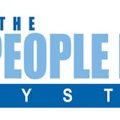Last updated on February 14th, 2023
Workplace psychologist Dr. Chris Allen helps organizations and leaders develop the “people” side of the business. As a Forbes Coaches Council contributor, Dr. Allen offers regular insights on topics such as changing organizational culture, aligning cultural values and team building in Forbes.com articles and offers quick advice via the Forbes Q/A feature.
Read this article on Forbes here: Are You An Authentic Leader? Here’s Why You Should Be
When you search the term, “authentic leadership” on Google, you get over a million hits in less than a second. The concept really exploded in the first decade of the 21st century. It reflects a cultural need for leaders who are genuine, high in moral integrity, emotionally intelligent, and value openness and transparency.
The excesses of corporate greed captured by the movie Wall Street (1987) — remember the savings and loan crisis — the trauma and aftermath of 9/11, and the debacles of companies like Enron in 2001, triggered a craving for greater authenticity in our leaders. In essence, we need leaders we can trust — who lead with heart and vision.
As an executive coach, I hear a perceived contradiction from leaders between the goal of being “true to oneself” and the need to develop skills outside one’s comfort zone or preference in order to improve competence. One woman recently said after learning about herself in a team coaching workshop that she felt inauthentic when she tried to adapt her communication style to those who are very different from her on the team.
In a recent New York Times article, psychologist Adam Grant wrote, “Unless you’re Oprah, ‘be yourself’ is terrible advice!” He added, “Nobody wants to see your true self.” On the other hand, research professor Brené Brown, defines authenticity as “the choice to let ourselves be seen” and promotes “the power of vulnerability.” In my view, there is no true conflict between being genuine and becoming a better version of ourselves. In fact, as the poet E.E. Cummings wrote, “It takes courage to grow up and become who you really are.”
What’s important to remember is that we are each given certain raw materials to work with: our own natural talents and personality. But these raw materials need to be developed through self-awareness and disciplined practice. What I find interesting is that we tend to minimize or ignore what we do well; we tend to think everyone can do what we do naturally. But this is not so. Developing our talents into strengths and using them every day (instead of comparing ourselves to others — the kiss of death!) is the way to find our path in life as leaders and as people.
We need to understand and develop our natural gifts and correct for our weaknesses. We all know people who won’t admit to a flaw, but who act out that very behavior all the time (e.g., “What, me, angry? How can you say that?”). No matter how self-aware we become, we all have weaknesses and blind spots. When we ignore them, they can cause us to derail (think Travis Kalanik of Uber). Great leaders accept these weaknesses and commit to a lifelong process of growth and self-actualization. With this strategy, we become less defensive and less likely to lose our way because of our less-than-fully-conscious behaviors.
In my own experience as a leader, I found that my natural tendency to value harmony and treat others with respect made it difficult for me at times to speak the truth. I thought I might hurt others’ feelings or come off as harsh. As I have developed my own authentic leadership style in my work, and through my mentor, I have found ways to be forthright and honest while still showing my heart, compassion and empathy for others. It has helped me become a better version of myself.
So what’s the best way to develop your own authentic leadership style?
1. Work on knowing and understanding yourself. There is a variety of personality, values, and emotional intelligence assessments that can provide a lens for viewing yourself. Seek a formal or informal 360 from the important people in your life. Ask key people in your professional and personal life the following: “What are the three things that I do uniquely well? What could I do better? What do you think is the single most important change I could make in my life?” Be willing to own both your strengths and your weaknesses. Write your answers down and keep a journal.
2. Develop a personal strategic plan. Learn to lead from the inside out. What is your life purpose? What vision or mission do you have for your life? What routines do you have in place to enact your vision? How are you putting your core values into action?
3. Be willing to try on new behaviors for size. Otherwise, how will we know whether something really does feel authentic to us? We don’t know everything about ourselves, nor have we had the opportunity to develop in all arenas. A child who has great talent in music might never express this gift if raised in an environment without exposure to music. Be willing to experiment and get feedback from others, as well as from your own self-assessment.
The world needs authentic leaders who develop their own unique gifts and talents to meet the challenges their teams and organizations face. Authenticity is not an excuse for behaving badly, or for mindless self-expression. It is a tool for personal and professional well-being, and for serving others in our greatest capacity.
You can read the article on Forbes here: Are You An Authentic Leader? Here’s Why You Should Be







0 Comments